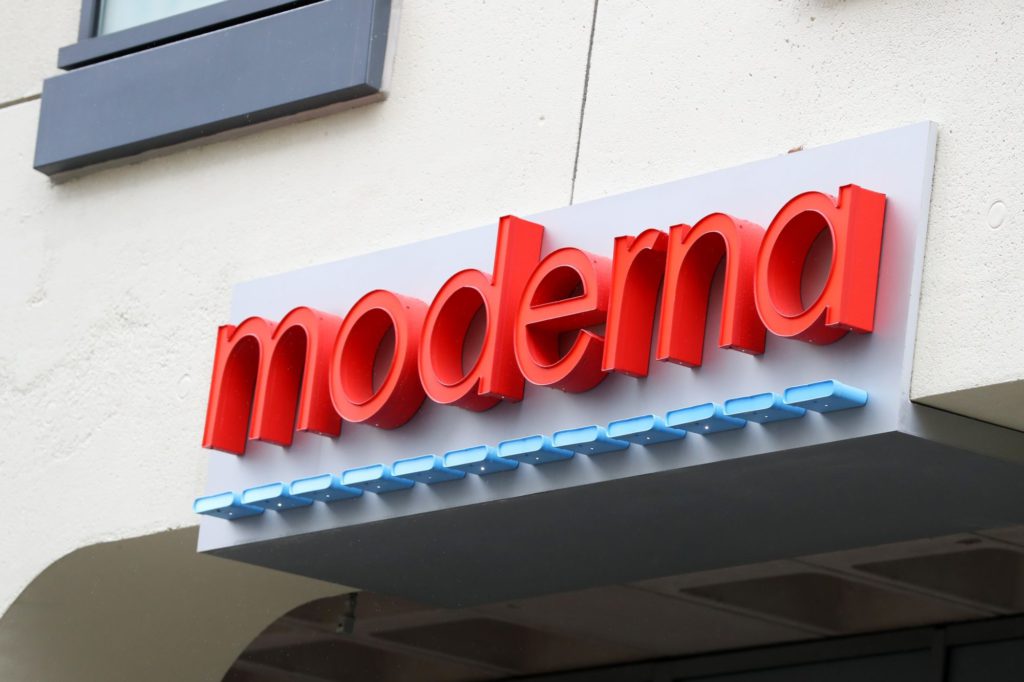Moderna Inc.’s experimental personalized cancer vaccine reduced the risk of relapse or death from melanoma when combined with Merck & Co.’s Keytruda in a mid-stage trial.
(Bloomberg) — Moderna Inc.’s experimental personalized cancer vaccine reduced the risk of relapse or death from melanoma when combined with Merck & Co.’s Keytruda in a mid-stage trial.
The two therapies cut the risk of death or recurrence of the lethal skin cancer by 44%, the companies said Tuesday in a statement. The drugmakers plan to move the combination into final-stage studies next year.
Skin cancers are by far the most common human tumors, and melanoma — an aggressive, hard-to-treat form — accounts for about 1% of the total. About 100,000 people are diagnosed annually with melanoma, and more than 7,000 of them die each year, according to the American Cancer Society.
Merck’s Keytruda, which prevents cancer cells from evading immune system defenses against tumors, has become a mainstay of melanoma treatment, both in advanced inoperable cases and prevention of recurrences after surgery. The Moderna vaccine trial is aimed at stimulating additional immune response beyond those achieved with Keytruda alone.
To make the vaccine, Moderna takes a biopsy of a tumor, isolates some of the proteins and integrates them into a vaccine that teaches the immune system to recognize those markers. That helps the body fight the cancer if or when it returns.
New Applications
Researchers have been working on personalized cancer vaccines for decades with only limited success, not least because they’re hard to manufacture on a large scale. Moderna’s messenger RNA technology is more flexible than many older technologies, making one-of-a-kind bespoke shots more practical to produce.
The company has been searching for successful new applications for mRNA, which facilitated fast development and production of Covid-19 vaccines. Companies including BioNTech SE, Pfizer Inc.’s partner in making Covid vaccines, had been experimenting with mRNA vaccines against cancer before the pandemic.
Messenger RNA “has been transformative for Covid-19, and now, for the first time ever, we have demonstrated the potential for mRNA to have an impact on outcomes in a randomized clinical trial in melanoma,” Moderna Chief Executive Officer Stéphane Bancel said in the statement. “We will begin additional studies in melanoma and other forms of cancer with the goal of bringing truly individualized cancer treatments to patients.”
Moderna shares have fallen 35% this year through Monday. Merck is up 42%.
(Updates with melanoma statistics in third paragraph)
More stories like this are available on bloomberg.com
©2022 Bloomberg L.P.










